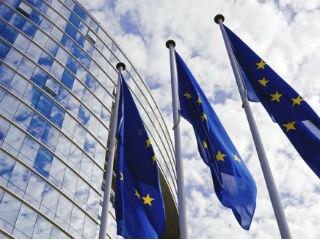by Andres Ortega*
From May 23rd to May 26th, more than 400 million Europeans are due to vote in one of the largest democratic undertakings in the world (India’s is larger still) to elect the European Parliament.
That chamber co-legislates with the European Council on many matters, and acts as a sounding board for a nascent European consciousness.
Turnout in these elections has been waning since they began in 1979, dropping from an initial 61.99% to 42.61% in 2014. This time, much is at stake, especially with nationalist-populist voices on the rise. But will it be enough to mobilize voters?
The support harvested by the nationalist-populists and other Euroskeptics are an important gauge to look out for after the elections.
They will have a crucial impact, for example, on some decisions taken by the European Parliament, such as the sanctions to be applied against countries threatening democratic norms and the rule of law, like Poland and Hungary, two countries where the Euroskeptics are strong.
Euroskeptics have changed their tune
Many of these Euroskeptics have changed their tune during the campaign. They know that the EU has gained in popularity, including in Hungary and more so in Poland, where people have a positive perception of their membership of the Union.
In France, Marine Le Pen’s National Rally now no longer advocates leaving the euro, but it does support a return to strong national borders and a Europe of sovereign states.
Obstructionism ahead?
The governments of recalcitrant countries, including Italy, may also choose to nominate fiercely anti-European figures as candidates for the College of Commissioners. This could potentially cause the institution to malfunction, even if the new Commission President assigns them secondary posts.
There are precedents. In certain cases, candidates aspiring to the Commission have been rejected for their past — albeit prior to their candidacies being made official.
At the same time, the nationalist-populists or the hard-right do not form a cohesive unit. These forces are still too disparate and unalike – to the regret primarily of Steve Bannon and his movement– to shatter the European project on the EU scale.
France: Key battle ground
The election result that will probably attract the most attention is that of France. The question is whether Marine Le Pen’s National Rally (RN) is capable of winning more votes/seats in this election than French President Emmanuel Macron’s En Marche.
Macron is the leader who has the most developed vision of Europe’s future among EU countries at the moment. He needs a positive result in these elections to shore up his momentum inside the EU, as well as in France itself. The polls suggest the race is neck-to-neck.
As to the election results in the UK — they will put new political dynamics into play. The polls suggest that the party rising fastest is the resurrected Nigel Farage’s Brexit Party.
In contrast, the Labour Party, due to its vagueness, especially on a second referendum, is losing votes, while the Conservatives are falling apart. This has heightened the prospect of Theresa May being replaced, probably by a Brexit hardliner.
Conclusion
These European Parliament elections will mark a new, more complex political era, with more challenges but also new possibilities.
A key question is how the most pro-European parties, beyond the election of the President of the Commission, subsequently come together with an inspiring project for the EU. There is a clear need for not just halting but reversing the shift toward nationalist-populist movements.
*Senior research fellow at the Elcano Royal Institute, a major Spanish foreign affairs think tank.
**first published in TheGlobalist




 By: N. Peter Kramer
By: N. Peter Kramer

